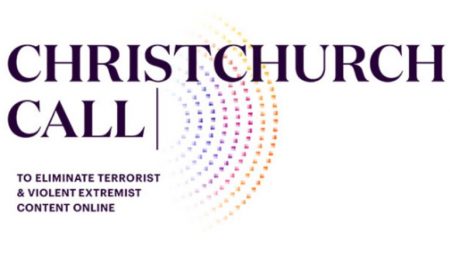Christchurch Call to Action 21/05/2019 – Posted in: Blog – Tags: Christchurch Call to Action, Masood Azhar, New Zealand church killing
CHRISTCHURCH CALL TO ACTION
For: Preliminary & Mains
Topic covers: Christchurch attack, Christchurch Call To Action, US refuse, Commitments, India’s support, Masood Azhar
News Flash
To combat online extremism, India signed on to a new global anti-terror initiative that is spearheaded by the governments of France and New Zealand along with top social media companies after the Christchurch attacks.
What had happened at Christchurch?
On March 15, four gunmen stormed two mosques in Christchurch, a city in New Zealand, and killed at least 49 people and injured several others, including children and senior citizens.
Shooters opened fire in Al Noor mosque on Deans Avenue and another at Linwood Avenue for a few minutes, indiscriminately killing Muslims offering prayers.
Highlights of Christchurch Call to Action
- To combat online extremism, India has decided to sign an international call
- It has been initiated by the governments of France and New Zealand along with top social media companies
- White House officials raised concerns that the document might be in contravention of the First Amendment
Christchurch Call To Action
- Christchurch Call for Action is the brainchild of New Zealand Prime Minister Jacinda Ardern and French President Emmanuel Macron to fight terrorism.
- The initiative “outlines collective, voluntary commitments from governments and online service providers intended to address the issue of terrorist and violent extremist content online and to prevent abuse of the internet as occurred in and after the Christchurch attacks”.
- All action on this issue must be consistent with principles of a free, open and secure internet, without compromising human rights and fundamental freedoms, including freedom of expression.
- It must also recognise the internet’s ability to act as a force for good, including by promoting innovation and economic development and fostering inclusive societies.”
- The document called “Christchurch Call To Action” was signed and adopted with participation from 26 nations, including France, New Zealand, European Commission, Ireland, Norway, Senegal, Canada, Jordan, UK, Indonesia, Australia, Germany, Japan, Spain, Netherlands, Sweden and India.
- Among the social media companies and IT enterprises were: Microsoft, Qwant, Daily Motion, Google, YouTube, Twitter, Facebook and Amazon.
Why did the US refuse to sign?
- The US refused to sign the document saying it was “not in a position to join” because it needs to assure freedom of speech.
- However, the Christchurch Call for Action has already stated that it will not infringe on the freedom of expression.
The document states that the governments/signatories should commit to
- Counter the drivers of terrorism and violent extremism by strengthening the resilience and inclusiveness of societies to enable them to resist terrorist and violent extremist ideologies, including through education, building media literacy to help counter distorted terrorist and violent extremist narratives, and the fight against inequality.
- Ensure effective enforcement of applicable laws that prohibit the production or dissemination of terrorist and violent extremist content, in a manner consistent with the rule of law and international human rights law, including freedom of expression.
- Encourage media outlets to apply ethical standards when depicting terrorist events online, to avoid amplifying terrorist and violent extremist content.
- Support frameworks, such as industry standards, to ensure that reporting on terrorist attacks does not amplify terrorist and violent extremist content, without prejudice to responsible coverage of terrorism and violent extremism.
- Consider appropriate action to prevent the use of online services to disseminate terrorist and violent extremist content, including through collaborative actions, such as:
The document draws in the online service providers to commit to
- Take transparent, specific measures seeking to prevent the upload of terrorist and violent extremist content and to prevent its dissemination on social media and similar content-sharing services, including its immediate and permanent removal, without prejudice to law enforcement and user appeals requirements, in a manner consistent with human rights and fundamental freedoms.
- Provide greater transparency in the setting of community standards or terms of service, including by:
(i) Outlining and publishing the consequences of sharing terrorist and violent extremist content;
(ii) Describing policies and putting in place procedures for detecting and removing terrorist and violent extremist content.
The G7 and G20 summits will also be discussing online terrorism.
India and Masood Azhar
- India has been fairly active in conversations on global terrorism, ever since Jaish-e-Mohammad (JeM) took responsibility for bombing a convoy of Central Reserve Police Force (CRPF) soldiers in Pulwama and killing 40 of them.
- After this attack, India renewed its efforts to register JeM Chief Masood Azhar as a global terrorist as per the UNSC Sanctions Committee, which requires an individual or group to have links to ISIS or Al-Qaeda to be listed as global terrorists.
- JeM has already been blacklisted as a terrorist organisation in 2001. But this was India’s third attempt to blacklist Azhar.
- Azhar was listed as an individual terrorist, not as the mastermind of the Pulwama attack.
Source: India Today
You can follow us on LinkedIn and for more updates related to UPSC IAS Preparation, Like our Facebook Page and subscribe our Diligent IAS Youtube Channel
Also Read Related Daily News

